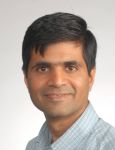 |
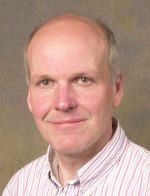 |
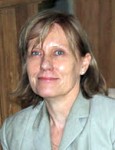 |
|
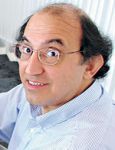 |
||
| Srinivas Bangalore | John Carroll | Sien Moens | Salim Roukos |
|
Announcements |
|
||||||||
|
|
Please help us to
improve the
Wikipedia article |
13th International Conference on Intelligent Text Processing and Computational Linguistics
March 11–17, 2012
Indian Institute of Technology Delhi
New Delhi,
India
Endorsement by the Association for Computational Linguistics (ACL) applied for
Publication:
Springer
Lecture Notes in Computer Science
(confirmed);
posters: a separate issue of a journal
Cultural program: full-day tours to
Jaipur, Agra, and Delhi.
Keynote: four keynote speakers
anticipated
Awards: best paper, best presentation, best poster,
best software
See our new verifiability, reproducibility, and
working description policy
Volunteer
helpers wanted!
See also photos of past CICLing events
Call For Papers
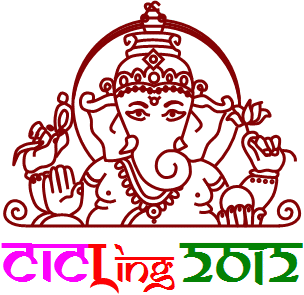
This conference is the thirteenths CICLing event. Some comments about past CICLing conferences include: Best NLP conference in Europe (Dan Tufiş, 2010), Fantastic conference! (Martin Kay, 2004), Everything was just great! Super-hyper-ultra-well done! (Igor Mel'cuk, 2000). We consider the following factors to define our identity:
![]() High
reputation. CICLing is one of leading NLP conferences,
ranked 8th in
the NLP category by ArnetMiner and B by
the
CORE list. Its PoP h-index
is 23, which is below top conferences like ACL but above a number of other very
decent NLP conferences.
High
reputation. CICLing is one of leading NLP conferences,
ranked 8th in
the NLP category by ArnetMiner and B by
the
CORE list. Its PoP h-index
is 23, which is below top conferences like ACL but above a number of other very
decent NLP conferences.
![]() Good publication. The Lecture Notes in Computer Science (LNCS)
published by
Springer is a prestigious book series /
journal highly valued in many countries for university promotion. CICLing is
included in ISI Conference Proceedings Citation Index, EI, and a number
of other important indices.
Good publication. The Lecture Notes in Computer Science (LNCS)
published by
Springer is a prestigious book series /
journal highly valued in many countries for university promotion. CICLing is
included in ISI Conference Proceedings Citation Index, EI, and a number
of other important indices.
![]() Excellent
keynote speakers. We invite the most prominent scientists of the
field to give keynote talks that (unlike other conferences) are published
in extenso in the proceedings. Each keynote speaker also organizes an additional tutorial or
discussion. They usually participate in the cultural program, where you can interact
with them in an informal environment. [Past
participants' opinions]
Excellent
keynote speakers. We invite the most prominent scientists of the
field to give keynote talks that (unlike other conferences) are published
in extenso in the proceedings. Each keynote speaker also organizes an additional tutorial or
discussion. They usually participate in the cultural program, where you can interact
with them in an informal environment. [Past
participants' opinions]
![]() General interest.
The conference covers nearly all topics related to computational linguistics and
NLP. This
makes it attractive for people from different areas and leads to vivid and
interesting discussions and exchange of opinions.
General interest.
The conference covers nearly all topics related to computational linguistics and
NLP. This
makes it attractive for people from different areas and leads to vivid and
interesting discussions and exchange of opinions.
![]() Informal interaction.
The conference is intended for a
rather small group of
professionals. This allows for informal and friendly
atmosphere, more resembling a friendly party than an official event. At CICLing,
you can pass hours speaking with your favorite famous scientists who you
scarcely could even greet in the crowd at large conferences.
Informal interaction.
The conference is intended for a
rather small group of
professionals. This allows for informal and friendly
atmosphere, more resembling a friendly party than an official event. At CICLing,
you can pass hours speaking with your favorite famous scientists who you
scarcely could even greet in the crowd at large conferences.
![]() Excellent cultural program. The conference is
intended for people feeling themselves young in their souls, adventurous
explorers of both science and life. Our cultural program brings the
participants to unique marvels of history and nature often hidden from ordinary
tourists.
Excellent cultural program. The conference is
intended for people feeling themselves young in their souls, adventurous
explorers of both science and life. Our cultural program brings the
participants to unique marvels of history and nature often hidden from ordinary
tourists.
![]() Relief
from the Winter frosts!
Relief
from the Winter frosts!
![]() Participants
of past CICLing events voted for India as a future venue.
Participants
of past CICLing events voted for India as a future venue.
![]() India
is one of the world's most fascinating tourist attractions with extremely rich
cultural and historical heritage.
India
is one of the world's most fascinating tourist attractions with extremely rich
cultural and historical heritage.
![]() In
2011, the country that provided the greatest number of submissions was India
(followed by Japan, the host country).
In
2011, the country that provided the greatest number of submissions was India
(followed by Japan, the host country).
Organization
CICLing 2012 is hosted by the Indian Institute of Technology Delhi and organized by the CICLing 2012 Organizing Committee in conjunction with the Natural Language and Text Processing Laboratory of the CIC, IPN.
In general, we are interested in whatever helps, will help eventually, or might help computers meaningfully deal with language data.
The conference is intended to encourage exchange of opinions between the scientists working in different areas of the growing field of computational linguistics and intelligent text processing. Our idea is to get a general view of the state of art in computational linguistics and its applications.
Areas of interest include, but are not limited to, the following topics, provided that the work is presented in computer-related or formal description aspects:
|
Computational linguistics research: |
|
|
|
|
Intelligent text processing and applications: |
|
|
|
We welcome works on processing any language (not necessarily English), though major languages are of more general interest. When discussing phenomena of languages other than English, please keep your discussion understandable for people not familiar with this language.
You can have a look at the contents of the proceedings of past CICLing events to get an idea of our interests. If not sure whether your topic is of interest, please ask us.
The topics of the keynote talks will be announced here later. To get an idea, please see the list of our past keynote speakers on the main page.
Traditionally, our keynote speakers give a formal talk, which is also published in extenso in the proceedings, and also organize a "special event" (a discussion, tutorial, experiment, or something just interesting). Such events, as well as publication of the keynote talks in the proceedings, are distinctive features of CICLing. [Past participants' opinions]
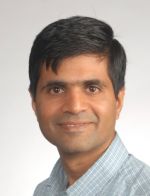 |
Srinivas Bangalore, AT&T Labs Research Thinking outside the box for Natural Language Processing Natural Language Processing systems are often composed of a sequence of transductive components that transform their input into an output with additional syntactic and/or semantic labels. However, each component in this chain is typically error-prone and the error is magnified as the processing proceeds down the chain. In this paper, we present details of two systems, first, a speech driven question answering system and second, a dialog modeling system, both of which reflect the theme of tightly incorporating constraints across multiple components to improve the accuracy of their tasks.. |
|
 |
John Carroll, University of Sussex Lexical Acquisition for Clinical Text Mining using Distributional Similarity We describe experiments into the use of distributional similarity for acquiring lexical information from clinical free text, in particular notes typed by primary care physicians (general practitioners). We also present a novel approach to lexical acquisition from ‘sensitive’ text, which does not require the text to be manually anonymised – a very expensive process – and therefore allows much larger datasets to be used than would normally be possible. |
|
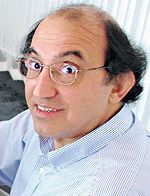 |
Salim Roukos, IBM Research Senior Manager, Multilingual NLP Technologies & CTO Translation Technologies, Thomas J. Watson Research Center Document-Specific Statistical Machine Translation for Improving Human Translation Productivity We present two long term studies of the productivity of human translators by augmenting an existing Translation Memory system with Document-Specific Statistical Machine Translation. While the MT Post-Editing approach represents a significant change to the current practice of human translation, the two studies demonstrate a significant increase in the productivity of human translators, on the order of about 50% in the first study and of 68% in the second study conducted a year later. Both studies used a pool of 15 translators and concentrated on English-Spanish translation of IBM content in a production Translation Services Center. |
|
 |
Marie-Francine Moens, Katholieke Universiteit Leuven Machine Understanding of Text: A Complex Puzzle to Unravel Machine understanding of text is a long-term goal of artificial intelligence research. Current technologies are already quite successful at extracting factual information from text. Their scope is, however, limited to, for instance, the recognition of individual events and their participants, and their temporal and locational settings. Connecting the different, often uncertain extractions into more complex discourse structures (e.g., the timeline of the events in a story, the premises and conclusions in argumentation, concepts that are composed of events and their causal relations) is much more difficult. In addition, the validity of an extraction is usually reinforced by the availability of other information present in a text or in other sources. In this lecture we discuss current technologies and their performance for story understanding, argumentation recognition and concept extraction. We point to the problems that need further research and to promising techniques that rely on language models, alignment, evidence combination and uncertainty reasoning. We illustrate the talk with our own research results in European and national projects.. |
|
Expression of interest (with a tentative abstract) |
passed |
|
Full text of registered papers |
passed |
|
Notification of acceptance |
passed |
|
Camera-ready for LNCS |
passed |
|
Camera-ready for journals |
to be announced |
|
Registration (authors) |
to be announced |
|
Conference |
March 11–17, 2012 |
Submitting a paper constitutes a consent for publication and a promise in case of acceptance to attend the conference and to pay the fee. See more details in the legal notices.
Paper submission is divided in two phases:
ASAP, the authors should express their interest by registering a tentative abstract of the paper. At this stage, the full text is not required and the tentative abstract will only be used to assign reviewers for your paper. Note that you can update abstract, title, or full text as many times as you wish while the paper submission system is open.
By October 31, the authors of previously registered papers should upload the full text of the paper. No changes should be made after this date (but contact the organizers if you need to make changes). It is a good idea to upload your paper when you have it in a reasonably good shape, just in case; later you can improve it and update it while the system is open.
Late submissions: While the system is open you can submit/update your paper and we will do our best to normally review it (though no guarantee). Contact us if the system is closed or if you need considerably more time to submit the full text. In this case please first register your abstract and then contact us to negotiate the date of submission of the full text.
NEW To better plan the conference, we kindly ask you to fill in the registration form. You can later change that information, so please do fill the form now even if with incomplete info. This form, which will be the main way of communication between the participants and the Organizing Committee, may have frequent changes and additions, which will be announced on the board of announcements (at the top of the page). Please visit the conference webpage frequently, to provide your additional information in the registration form when we need it.
By submitting a paper, at least one author has thereby promised, in case of acceptance, to pay the registration fee.
NEW Registration fee (and yes, we did our very best to make it as low as we really could):
The fee is per participant and per paper. I.e., for each paper, at least one fee is to be paid: if a participant presents two papers, two fees are to be paid. On the other hand, a participant that does not present any paper should pay a fee.
How to pay:
Account to pay from outside India, in USD only: After you have paid, please send to local-committee2012@cicling.org a scanned copy of the payment proof, indicating also your name and your paper ID and title. Please make sure that we receive exactly the due amount, so that any fees and commissions should be added to the payment at your side. When paying, please give all this information to the bank:
|
Corresponding Bank - Details of our bank accounts for the remittance:
THE CHASE MANHATTAN BANK, N.A. CHIPS UID 340828 NEW YORK, USA SWIFT ADDRESS: CHASUS33 FED ROUTING CODE: 021000021
For the Credit of ICICI Bank Ltd India account Number in the Chase Manhattan Bank: 001-1-427374 SWIFT – ICICINBBCTS
For Further Credit to Final Destination Bank
Local Bank Name in India: ICICI Bank Limited Beneficiary Name: Dreamz Conference Management Pvt.Ltd Beneficiary Account Number: 629605011336 Beneficiary Bank Address: G-2, 1st floor, Opp.PVR Cinema, Vikas Puri, New Delhi - 110018 (India) Beneficiary Address: 218, Ansal’s Majestic Tower, Vikas Puri, New Delhi - 110018 (India) |
Why this fee? Our policy in determining the fee takes into consideration the following factors:
We do our best to keep the fee as low as possible. In particular, CICLing is run in a non-profit manner: nobody of the organizers receives any money.
CICLing gives more than most conferences do. In particular, CICLing provides a greater number of keynote speakers and a much wider cultural program; this inevitably affects the fee. Lowering the fee beyond reasonable level would greatly decrease the quality of the conference and the benefits for its attendees, while making negligible difference for the budget of most participants:
Most universities allocate sufficient funding for attending conferences;
The fee is a minor part of your total expenses, as compared with the airplane tickets and lodging.
In addition to the expenses for each participant, the fee includes a number of waivers for poor students.
If you pay: You pay a bit more than is spent on your participation: you also pay for students from poor countries;
If you don't: A waiver does not mean waiving the fee; instead, it means that others pay for you. Your waiver increases the fee for all.
We will likely have little or no governmental funding (please let us know if you can help in any way in, or give advice about, obtaining sponsorship or another kind of help).
On reduced registration fee: A limited number of reduced fees will be available. To apply, please contact us and thoroughly justify your application. Eligible for reduced registration are people from underdeveloped countries in case if their institutions have real difficulties paying the full fee (generally not included: North America, Western Europe, China, South Korea, Japan, but if you feel your situation is really different, try applying anyway). Authors must apply for reduced registration (clearly indicating the discount amount) before submission of their paper, and also must tick the group "[X] Discount or waiver is requested" in the web submission system. No applications will be considered for already reviewed papers. Notes:
Though all papers are judged by strictly academic criteria, in borderline cases and between papers of comparable quality we may give preference to papers with fully paid fee.
Though we will do our best for this not to happen, we cannot guarantee providing some material (including the proceedings) to participants with reduced fee. Also, in case of lack of seats in the excursion bus we will have to give preference to fully registered participants.
We are interested in a few volunteer helpers, please contact us. Speakers of the local language and residents of the local venue are preferred. Volunteers may have preference in assigning fee reduction.
All papers accepted for oral presentation will be published in a proceedings volume edited by Springer in its Lecture Notes in Computer Science series (confirmed), which is indexed in many major indices. Papers accepted for poster presentation will be published separately in a special issue of a journal (to be announced later), see Poster Session (let us know if you actually prefer the poster type of publication).
In addition to the text of the paper, authors are strongly encouraged to provide programs that permit to reproduce their results, see CICLing verifiability, reproducibility, and working description policy.
Before submitting, please check our video recording legal notice. By submitting a paper, at least one author thereby promises, in case of acceptance, to attend the conference in person to present the paper and to pay the corresponding registration fee. Submissions are received electronically:
Contact: See email options, fax, and the street address on www.CICLing.org/contact.html. Please avoid sending us any physical mail: we strongly prefer electronic communication.
Starting from 2011, CICLing implements a policy of giving preference to papers with verifiable and reproducible results, i.e., papers that provide the code and lexical resources that allow to reproduce the results. This is not a requirement. If for any reason you cannot accompany your paper with the code, go ahead and submit your paper normally.
A Special best verifiability, reproducibility, and working description award will be given at the conference.
For the time being, we encourage the submitted software to be anonymous but we do not require this.
Please see our reasons and goals, a detailed description of the CICLing verifiability, reproducibility, and working description policy, and some FAQ.
The following awards will be given at the conference:
![]() Best Paper awards
has been assigned by the
Award Committee
basing on the reviewers' scores and
judgment of the Committee members. The criteria taken into account are: novelty,
originality, and importance of the reported work and overall quality of the
paper.
Best Paper awards
has been assigned by the
Award Committee
basing on the reviewers' scores and
judgment of the Committee members. The criteria taken into account are: novelty,
originality, and importance of the reported work and overall quality of the
paper.
|
|
Winners: | ||
| First place: | Vasile Rus and Nobal Niraula, USA, for the paper: Automated Detection of Local Coherence in Short Argumentative Essays Based on Centering Theory | ||
| Second place: | Savas Yildirim and Tugba Yildiz, Turkey, for the paper: Corpus-Driven Hyponym Acquisition for Turkish Language | ||
| Third place: | Filippo Galgani, Paul Compton, and Achim Hoffmann, Australia, for the paper: Towards automatic generation of catchphrases for legal case reports |
![]() Best
Student Paper award has been assigned by the
Award Committee basing on the same
criteria, but choosing out of papers whose first author is a full-time student and
excluding the papers selected for a Best Paper award.
Best
Student Paper award has been assigned by the
Award Committee basing on the same
criteria, but choosing out of papers whose first author is a full-time student and
excluding the papers selected for a Best Paper award.
|
|
Winners: | Miikka Silfverberg, Krister Linden, and Mirka Hyvarinen, Finland, for the paper: Predictive Text Entry for Agglutinative Languages Using Unsupervised Morphological Segmentation |
![]() Best
Verifiability, Reproducibility, and Working Description award
has been assigned by the Software Reviewing Committee
for the software accompanying the paper that best fulfills the goals of our
verifiability, reproducibility, and working description
policy. The criteria taken into account are: the clarity, simplicity,
completeness, and overall quality of the code accompanying the paper that allows
to verify and exactly reproduce the claims of the paper; see more details in the
instructions for software reviewers.
Best
Verifiability, Reproducibility, and Working Description award
has been assigned by the Software Reviewing Committee
for the software accompanying the paper that best fulfills the goals of our
verifiability, reproducibility, and working description
policy. The criteria taken into account are: the clarity, simplicity,
completeness, and overall quality of the code accompanying the paper that allows
to verify and exactly reproduce the claims of the paper; see more details in the
instructions for software reviewers.
|
|
Winners: | Ashish Sadh, Amit Sahu, Devesh Srivastava, Ratna Sanyal, and Sudip Sanyal, India, for the paper: Extraction of Relevant Figures and Tables for Multi-document Summarization |
![]() Best
Presentation award will be assigned oral session authors by a ballot among all
participants. The criteria taken into account are: the clarity and overall
quality of the presentation, and in lesser degree the technical quality of the
presented work.
Best
Presentation award will be assigned oral session authors by a ballot among all
participants. The criteria taken into account are: the clarity and overall
quality of the presentation, and in lesser degree the technical quality of the
presented work.
|
|
Winners: | To be announced. |
![]() Best
Poster award will be assigned to poster session authors by
a ballot among all participants. The criteria taken into account are: the
clarity and overall quality of the poster, and in lesser degree the technical
quality of the presented work.
Best
Poster award will be assigned to poster session authors by
a ballot among all participants. The criteria taken into account are: the
clarity and overall quality of the poster, and in lesser degree the technical
quality of the presented work.
|
|
Winners: | , Germany, for the poster: An Automatic Method for Creating a Sense-Annotated Corpus Harvested from the Web |
The papers accepted for the poster/demo session are anticipated to be published in a special issue of a journal, to be announced later. See here the guidelines for submitting and preparing your poster.
Poster session will be combined with the welcome party, so people will be in good mood when reading your poster. In our experience the authors often have better opportunity to communicate their idea to interested attendees via individual live interaction at a poster presentation than via standard talk. If you feel your paper is not competitive enough for the oral session, do go ahead and submit it: a poster can be an excellent opportunity for you to get feedback.
Before the poster session, on Monday afternoon, the poster papers will be presented (or we can call it announced) orally. Each presentation will be of one minute, and you can use a couple of slides. It is probably a good idea to use one or two slides to show the title and the main idea of your work, and another slide to briefly show an image of your poster, for people to recognize your poster during the poster session. The purpose of this one-minute presentation is not to explain your work in detail but to attract attention of people to you and your poster. If you succeed, you will then have two hours to explain your work to all interested people, during the poster session and in fact all the breaks on other days. Thus, please only include the main "selling points" of your work in your short presentation. Too much information would only confuse people.
To streamline the session, we will ask you to send us your presentation, to be pre-loaded to our laptop. If you have your laptop at the conference, then please also have the same presentation prepared on your laptop in case if for any reason it does not run correctly on ours.
There will be four days of technical program and three days of cultural program:
|
Sunday 11: |
full-day cultural activities |
|
|
Monday 12: |
keynote talk, regular talks, special event, poster session, welcome party |
|
|
Tuesday 13: |
keynote talk, regular talks, special event |
|
|
Wednesday 14: |
full-day cultural activities |
|
|
Thursday 15: |
keynote talk, regular talks, special event |
|
|
Friday 16: |
keynote talk, regular talks, special event, awarding and closing ceremony |
|
|
Saturday 17: |
full-day cultural activities |
See program outline and detailed program. All short presentations will be together with the poster session on Monday afternoon.
If you don't have time for the cultural program, you can arrive on Monday and leave on Friday; you will miss some cultural activities.
NEW Detailed program announced. Please check the time of your talk and let us know if there is any problem. Please also let us know if your talk is to be cancelled (this will not affect publication).
Citation data: Papers accepted for publication in Springer LNCS will be published in the volumes 7181 and 7182; see cover images on the right, see ISBN and technical data in the front matter for vol. 7181 and for vol. 7182. See also Table of Contents and Author Index for both volumes.
Papers accepted for publication in the supplemental proceedings (short oral presentation + poster presentation) will be published separately; details to be announced.
For detailed information on the cultural program, see our cultural program page. You will need to reserve your places for the tours and give us other necessary information by filling in the registration form (when available).
NEW See here for details of the official hotel of the conference.
It is convenient for the participants to stay in the same hotel, to facilitate informal interaction. Usually our participants form ad-hoc informal companies in the hotel reception to go to some restaurant, local sightseeing, etc. All cultural activities will start from the official hotel. In addition, this hotel provided discounted rates for CICLing participants. We suggest you not to book a different hotel.
Transportation instructions will be provided on the local information page.
Please see the venue info and local transportation guide. The information on that page is likely to be expanded in the future.
Obligations of authors. Submitting a paper constitutes a consent for publication, acceptance of the terms specified hereby, and a promise in case of acceptance to provide a duly filled copyright transfer form, to attend the conference, and to pay the registration fee, except in the cases agreed upon in due time with organizers.
Video recording. All CICLing-related activities, both academic and cultural, may be video recorded, photographed, and/or live video broadcast over the Internet or otherwise. The organizers may make the recordings and photos publicly available or provide them to third parties for any legal purpose, including storage and distribution. Unless otherwise explicitly communicated to the organizers in advance, by submitting a paper, registering for the conference, or attending the conference you authorize the organizers, attendees, or persons authorized by the organizers, to video record, photograph, and/or video broadcast all conference activities, including your presentation, and to make these video recordings and photos publicly available and/or available to any third party for any legal purpose, and you also promise to explicitly confirm this authorization, in writing or otherwise, if later asked to do so by the organizers. If this is a problem, please contact us in advance.
Cultural program. Some or all of the cultural program activities will be organized not professionally but by volunteers. We will make any reasonable effort in order for the activities to be interesting, well-organized, and safe, but we cannot guarantee any particular quality of service. Some activities may require physical effort, such as much walking, and/or rely on the use of public transportation. The cultural program is a courtesy of the organizing committee provided "as is" and intended to help the participants in visiting certain places, which they visit under their own risk and responsibility.
General disclaimer. No special insurance, medical service, or security measures will be provided for the conference. The participants are advised to arrange with a third party for their travel insurance that includes international medical coverage, as well as to observe the standard safety precautions. The participants will take part in all activities of the conference entirely on their own risk. The organizers shall not be liable for any illness, injuries, stolen objects, or any other problems that the participants may face during the cultural or academic program of the conference. This note does not imply any specific danger for CICLing attendees; this is a standard legal disclaimer generally applied to any conference, in any part of the world.
General Chair: Alexander Gelbukh
Local Committee Chair:
Niladri Chatterjee
Organizing Committee
|
|
Florian Holz
Miloš Jakubíček
Sergio Jiménez Vargas
Ronald Winnemöller
Alexander Gelbukh (Chair)
|
NEW
(keynote speakers |
|
Old variant:
|
|
![]() Return to the top of the page.
Return to the top of the page.